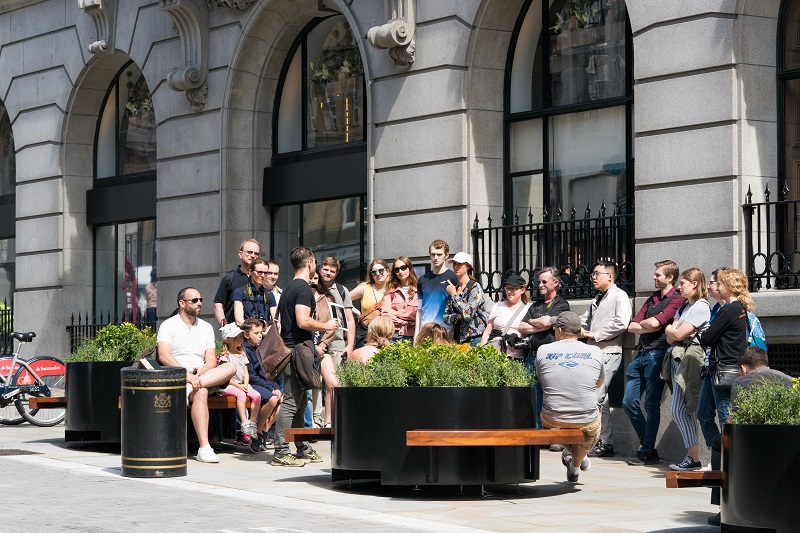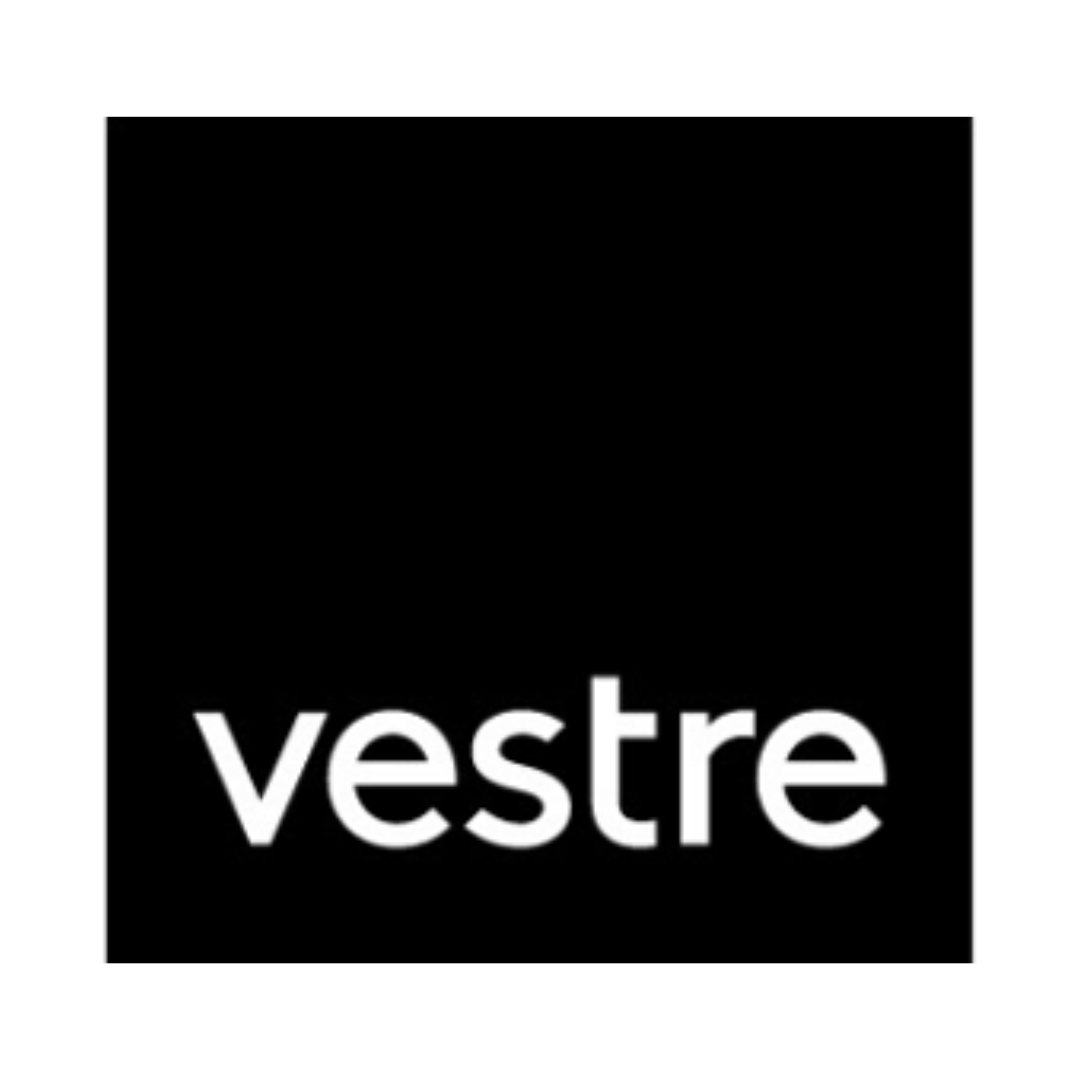Project showcase
The Northbank Low Emission Neighbourhood, Westminster - The Northbank BID

To tackle local pollution and exposure to pollution, The Northbank BID worked with both GLA and Westminster City Council to develop a Business Low Emission Neighbourhood (BLEN) and is re-planning deliveries and servicing, awareness raising campaigns, and promoting walking and cycling
Describe the context and brief for this place?
The Northbank BID is in the heart of London and is the gateway into London’s West End, from Victoria Embankment and the Strand but the area suffers from some of London’s worst air quality which impacts on local workers, residents and visitors. The area has a thriving local community with churches, cultural institutions, school, universities and businesses. The BID worked with partners to secure GLA funding for Business Low Emission Neighbourhood (BLEN) to deliver a coordinated focus for street greening to improve air quality, and raise awareness of air pollution issues, make the area more attractive to walk and cycle and help businesses to reduce their emissions.
The BID worked with Westminster City Council and Groundwork London to deliver the BLEN, comprising of a series of green infrastructure interventions, behaviour change campaigns, business engagement and delivery service planning. Projects were designed to build on work previously undertaken by the BID and partners, which included, clean air days and engagement with businesses for Air Quality pledges. The street interventions located at key gateways to aid wayfinding and were carefully considered for each location to minimise potential anti-social behaviour. Planters are robust, durable and as “vandal resistant” as possible.
The BLEN was overseen and guided by a steering group, consisting of BID members and Westminster City Council officers. It was delivered between, September 2018 - August 2019 and has initiated several legacy projects for continuing improvement. The activities were designed to benefit local businesses, visitors, residents and the school community.
How has this project or intervention contributed to the urban life or user experience of this place?
The BLEN enhanced urban life and improved the user experience, by taking a holistic approach and cohesively delivering both street enhancements and behaviour change activities. Synergies were created in order to maximise reach and impact which was supported by an engaging communications campaign. Stakeholders and partners were inspired to take innovative operational changes to improve the local environment.
The Northbank BLEN street interventions have contributed to urban life by creating Clean Air Walking Routes: • Development of cleaner air walking routes, a network of linked enhanced spaces with a coordinated pallet of materials • Improve public realm attractiveness, functionality, way finding and permeability to encourage walking and active travel • Cleaner and more inviting walking and cycling routes with enhanced infrastructure. • Increased green infrastructure in the public realm which supports local biodiversity. • Working with St Clement Danes School to bring local area greening on Drury Lane.
The Northbank BLEN behaviour change initiatives have directly contributed to urban life by • Supporting businesses to take practical steps to lower their emissions. • Working with St Clement Danes School to raise awareness of air quality issues and promote walking routes to school. • Promotion of cleaner air walking routes to visitors and workers to encourage mode change and active travel with area wayfinding map. • Information communication campaign to increase awareness of local air quality and simple steps to reduce personal exposure • Behaviour change to reduce personal deliveries.
What do you see as the greatest success of this project?
Collaboration has been essential to deliver all projects and the excellent working relationship developed during the BLEN is now leading to new and exciting plans for the Aldwych, Strand and the riverfront. Partnerships with local and regional authorities as well as local organisations supported the project throughout.
The BLEN identified many street enhancement opportunities and delivered 7 locations. Under the BLEN umbrella, new street greening interventions have been tested in locations that are extremely challenging with high numbers of pedestrians, street litter and anti-social behaviour. Greening has made the areas feel more welcoming, safe and healthier. More work is now being done to deliver greening in the other locations.
The behaviour change project targeted reducing business deliveries and excellent results were demonstrated by work done with Somerset House and their over 200 business residences. Deliveries were reduced by 12% and food and beverage deliveries were reduced by 16%.
The communications campaign gave a visual look to the BLEN projects, events and important social media presence. Key communications message was to share easy to do changes such as choice of walking route with the broader impacts of London’s air quality and the actions that businesses can take to do their bit. The link between individual choice and business decisions with local environmental challenges meant that messaging was suitable for everyone no matter where they were on their journey to improved sustainability.
The BID is continuing with the greening, sustainability and health focus with multiple legacy projects.
Please share any figures that support your entry – for example, increased dwell time, happiness surveys, footfall, event attendance, or observed changes in behaviour. Article references or quotes from supporters or reviews in the media may also be included. Quotes for local community:
"the clean air routes run parallel to my usual commute so will definitely be taking them in the future" • "I take a bottle of water with me when walking on busy routes as the air quality is so bad. It’s great to find out about the cleaner routes"
Quotes from school community: • ‘I liked that instead of just learning it was also very fun. I liked looking at the maps.’ • ‘I really liked the workshop an found it really interesting.’ • To prevent air pollution, we can: ‘Plant more foliage, take public transport and not use cars which produce NO2.’
Key Figures: 2,366 - people with increased knowledge of air pollution/ know how to reduce their exposure 26,800 - people engaged 208 - people walking more 376 - businesses engaged 368 - individual pledges made 15 - businesses pledges made 90 - surveys carried out before interventions installed 89 - evaluation surveys carried out following installation 49 - Number planters installed 47.6 m2 - Greening delivered (m2) 20m2 - Square meters of green wall delivered 1 - Cleaner Air Well Being Walking Route created 523 m - Length of walking route improved 6 - Cycle hoops installed 1 - Parklet designed developed 1 - Legible London Asset installed 1 - Walking Route Map produced 400 - Walking Route map distributed 54 - posters displayed in work places and shop windows 2500 - post cards distributed.
Festival of Pineapples
24-26 February 2026
Pineapples prize giving night
April
Pineapples at Festival of Place
10 June 2026
© The Pineapples - Tweak Ltd. 124 City Road, London, EC1V 2NX. Tel: 020 3326 7238




